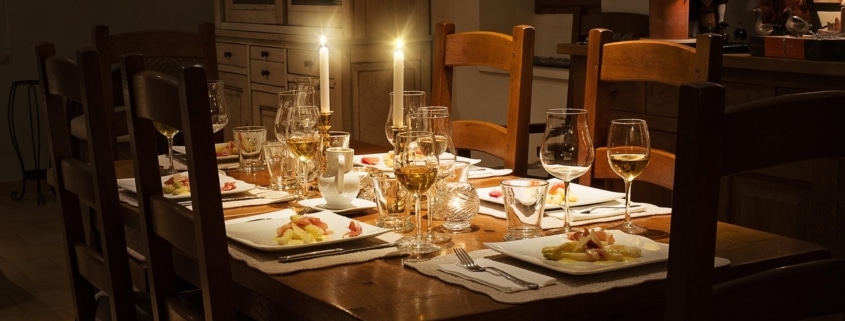Self and Community Care Strategies for Navigating Eating Disorder Recovery During the Holidays
Author: Kathryn Lodwick-Jones, LPC, BC-DMT, NCC
Navigating the Holidays in Recovery
The holiday season can be both joyful and challenging for everyone, especially those in Eating Disorder Recovery. Common triggers can include: food-centered gatherings, uncomfortable family dynamics, and disrupted routines. This article aims to offer practical self and community care strategies to manage recovery from Eating Disorders during the holiday season.
Prepare and Plan Ahead
- Anticipate potential stressors including mealtimes, variety and availability of food, comments from loved ones, and potentially stressful social situations. By anticipating potential triggers, you can then identify an action plan to better cope.
- Create a recovery plan with your therapist or trusted support. Identify a recuperation plan for after stressful or overstimulating events.
- Create a structure where you can: set meal structure or time if possible, identify safe foods, and have exit strategies if a situation is too overwhelming.
Set Boundaries and Communicate Needs
- Identify boundaries that may be helpful to set with loved ones to mitigate extra stress. Examples of boundaries can be around food expectations, boundaries around body talk, or food talk related to dieting.
- Be clear (in advance, if possible) what conversation topics you will not participate in. Whether you are communicating this to the host, your partner, or trusted loved one; enlist loved ones and allies to support and advocate for you when necessary.
- Practice redirecting conversations or excusing yourself. During holiday gatherings, it can be challenging, if not impossible, for everyone to know your boundaries, needs, and expectations. It’s always okay to change the subject if you are uncomfortable, avoid answering an inappropriate question, or excuse yourself.
Prioritize Emotional and Physical Self-Care
- Practice emotion regulation and grounding techniques before, during, and after stressful holiday events. This can be a deep breathing or a meditation practice, or engaging in a mindfulness exercise such as a 5 senses check in or progressive muscle relaxation.
- Create a comprehensive before and aftercare plan that nurtures your mind and body and helps manage potential anxious thoughts and feelings. Engage in gentle movement, or go for a walk before or after to re-center or destress. Write in your journal, make art, call a friend, or watch a comfort show to ease your mind or decompress. Having an energizing or comfort ritual can allow you to feel connected with yourself and restabilize afterwards.
- Remember to rest and find balance where you can, rather than focusing on perfection or restriction. Self-care looks different every day, and that’s okay!
Practice Self-Compassion
The holidays are about connection and care, not perfection or performance. Remember that recovery is non-linear and has to be adaptive to what your needs and capacity are. Slips do not mean failure or permanent regression; they’re part of the recovery process and being human.
Lean into Community Care
- Don’t hesitate to delay reaching out to a mental health professional for support, looking into a support group, or leaning on a trusted loved one. Peer support groups can be a great way to connect with others who’ve had similar experiences or share similar concerns. It’s important to first identify what type of support you need. Sometimes hearing similar experiences can be validating, and at times, it can also be re-triggering. Be intentional about how you seek support.
- Create or engage in non-food centered gatherings. Attend a craft-night, bring a friend on an art museum tour, take a nature walk, join a book club, or host a movie or board game night.
Equilibria is a group of licensed mental health professionals in Pennsylvania and New Jersey with multiple specialties to serve all aspects of our diverse community’s mental, emotional, and behavioral needs. We provide in person and telehealth services to individuals of all ages, families, and those in relationships. Click here to schedule an appointment today.








